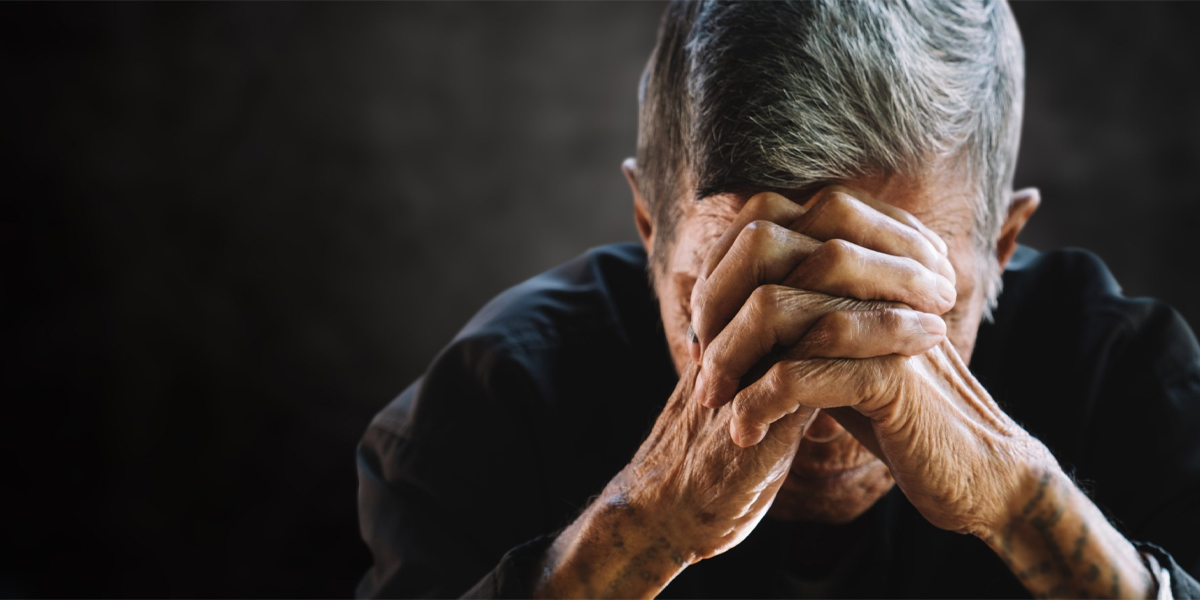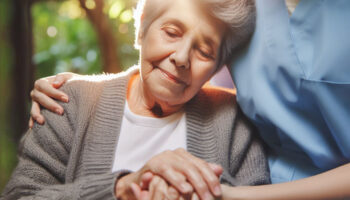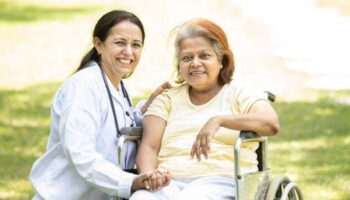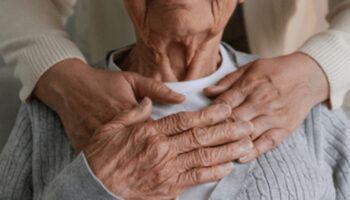Ageing is a beautiful journey that should be filled with care, joy, and memories. Like there exist two sides to a coin, so does ageing. Physically several changes may kickstart in older adults. During the phase of growing old with declining physical health, mental health deterioration could also join the club. Anxiety and depression in seniors are commonly reported mental health issues among the geriatric population.
About 80% of older adults are diagnosed with at least one chronic health condition, while 50% of them have more than one. Mental disorders are frequently reported among people with serious illnesses like cardiac disorder, cancer, kidney disease, and those whose functionality is declined.
Globally about 280 million individuals present with depression. In India, the prevalence of depression ranges from 8% to 12% among the geriatric population. Anxiety in seniors has been shown to range from 15% to 52%.
Going misdiagnosed and undertreated for mental disorders is common in older adults.
For the most part, depression and anxiety may seem distinct. But there are signs manifested for both. Many assume that depression and anxiety in seniors are normal while growing old and are a natural reaction to their illness or change in life patterns. At times even seniors assume the same and avoid seeking help. It’s high time to understand that anxiety and depression in seniors are common but should not be left untreated.
Identifying Signs
The signs and symptoms vary from one person to another making it difficult to identify. Anxiety refers to the feeling of fear, worry, and nervousness. It is the response to stressful situations like making decisions, trying something new for the first time, or major life events. Elderly with anxiety will display some of the following signs,
- Feeling on the edge
- Irritability
- Restlessness
- Panic
- Sleep issues
- Constant fatigue
- Lack of mental clarity and focus
- Physical symptoms of nausea, diarrhoea, headache and muscle tension
Depression is a mood disorder that makes one feel low and blue most of the time. One of the side effects of medications is depression. Administering multiple drugs at the same time could be a reason behind this. Older individuals turn very sensitive to this due to the inability of their bodies to process and metabolize drugs. Depression in seniors is manifested in any of the following ways.
- Fatigue, low energy
- Feeling guilty
- Feeling worthless
- Lack of interest in activities previously pleasurable
- Unable to concentrate and remember details
- Poor decision-making skills
- Memory problems
- Sleeplessness
- Suicidal thoughts or attempts
- Physical symptoms that don’t get better even after treatment
Dealing Depression and Anxiety
Struggling with both physical ailments and poor mental health is challenging for senior adults. Helping them deal with mental disorders will yield positive effects on their physical health management. Read ahead to learn ways of managing anxiety and depression in elders with serious health conditions.
Finding new hobbies: Learning new things that one might enjoy provides diversion and relaxation.
Physical Activity: Depending on the senior’s health condition, activity suggestions could change. Elders should first get a green signal from their physicians before exercising. Performing light exercises that they enjoy can help them cope with anxiety and depression.
Socialise: With illness progressing, older adults might lack opportunities or lose interest in socialising with others. Family members, friends, and caretakers could ensure to spend some quality time with them and help them stay socially active within the community. Expanding social networks is one of the best ways to build a happy mental space.
Adapt to change: Learning and accepting the change that accompanies ageing and health conditions make it easy to cope. Accepting and embracing changes from their physical appearance to their lifestyle boosts self-confidence and mental well-being.
Open-up Thoughts: The belief that anxiety and depression are normal with ageing and chronic health condition should be broken. Seniors should be encouraged to open up and share their thoughts and feelings rather than bottling them.
Professional Assistance: Seniors should be offered to consider professional help and take therapy sessions to feel better. Professionals may suggest antidepressant therapy for some individuals to improve their symptoms.
Healthy plate: Food and mood influence each other in different ways. Following a balanced, nutrient-rich diet with modifications based on the health condition is critical. Intake of essential nutrients will provide a feeling of satisfaction and emotional stability.
Breathworks: Practising breathing exercises helps calm and relax the mind. Deep breathing is an excellent way to cope with anxiety.
Adequate sleep: Practising a sleep routine will promote sound, undisturbed sleep. Often seniors with anxiety or depression will face trouble sleeping. Ensuring adequate sleep with make one feel refreshed and ready for the day.
Conclusion
Elders deserve an ageing phase filled with positivity, happiness, and care. Athulya takes pride in serving the best for the best. We prioritize mental wellness as much as physical wellness. Athulya incorporates different strategies to promote geriatric mental well-being. To discover more details, visit our homepage Athulya Assisted Living.





